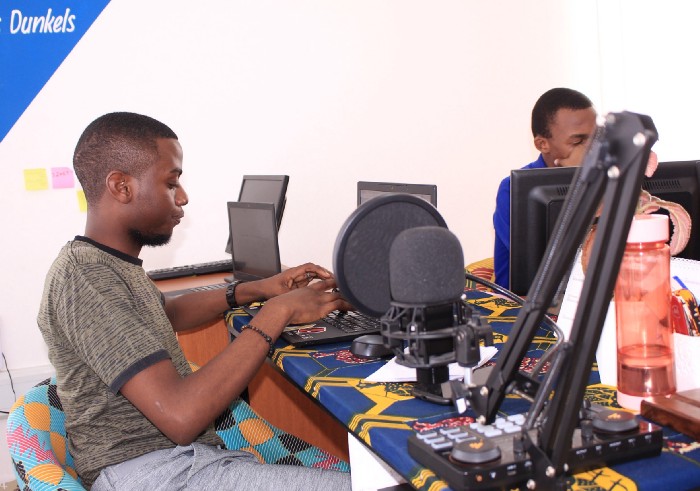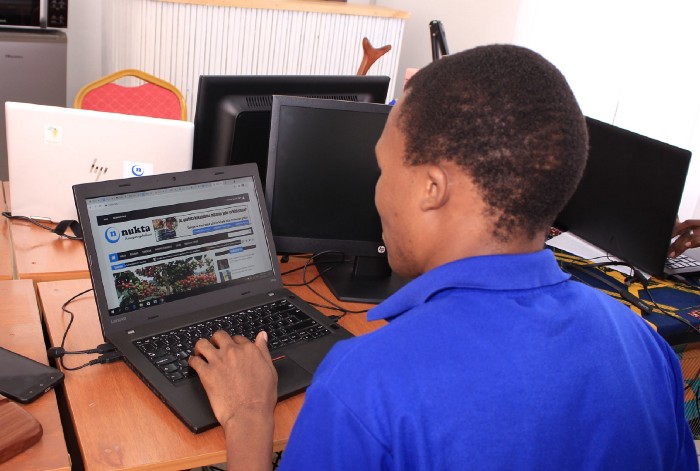Digital media including blogs, vlogs and podcasts has become the fastest growing media that spreads news beyond physical borders, as it connects its audience through the internet.
Despite its importance especially in sharing news, it poses serious quality challenges on what is supposed to go to the public due to limited gatekeeping. Who decides which information is right for the public? What kind of mechanism is applied by digital media outlets to provide content that is credible and just?
As we evaluate the press freedom journey around the world after celebrating the World Press Freedom Day on 3rd May 2021, we need to think about gatekeeping in the digital era where news spreads too fast with less or no editing at all.
Sometimes the information published by online media cannot independently be confirmed, resulting in confusion to the audience. Bad enough some of the mainstream media with serious gatekeeping policies fall under the same trap.
To help these ever increasing digital media or online news outlets, it is important to help them and insist on gatekeeping to avoid misinformation.
Since we saw this crisis coming a few years ago, at Nukta Habari (www.nukta.co.tz), a digital media on a daily basis, we developed a clear editorial policy that guides our journalists, editors, commentators and advertisers on how we handle our content and ads online.

Among the rules is speed to break news should not compromise accuracy and no story should be published on our news site without the second eye to gauge the standards even if it is written by experienced journalists. Never.
Though this might not be the case among many online news outlets in Tanzania, we see this gatekeeping practice help us provide accurate and credible content. It really adds trust with our audience.
To achieve this, we use the following techniques that can be applied by other emerging online media outlets:-
Use of credible sources
As this year’s World Press Freedom Day theme suggests “Information as a Public Good”. Online media have the role to produce content that comes from credible and reliable sources.
The public needs reliable and credible sources where they can go for news, thus why Nukta Habari is investing heavily on ensuring our stories are true and relevant to our audience. We want our stories to have a great impact on our audiences. Our editorial policy at Nukta Africa has detailed all these so that we don’t go outside our boundaries.
We always go further from press releases and conferences. We call experts and consult research and data on the issue to give more perspectives to the story. We do not depend on political speech alone.
These efforts have prompted us to push harder to ensure we fight misinformation in our country by fact checking fake claims and publishing the truth when we notice any misinformation trending online.
Professionalism and ethical conduct
This comes down to the public’s appetite for credibility. The audience needs to know what they are reading, watching or listening online is truthful.
The role of a journalist is to serve the public and maintain ethical conduct. To achieve this you need serious gatekeeping which is still significant even in the era of emerging digital media.

At Nukta Habari, accuracy, fair and balanced facts are our values to ensure what we feed our audience content that contributes to public good and just society.
Rescue you from restrictive laws
In a world where governments introces restrictive laws to the media when they fill it, it is important for digital news outlets to improve gatekeeping. Failure to adhere to gatekeeping by having good editors and fact checkers, you will find yourself in trouble with the local laws.
In Tanzania, for example, we have the Information Service Act of 2016, Cyber Crime Act of 2015, Electronic and Postal Communication Act of 2010 and its amendments and Statistics Act of 2015 which regulate the conduct of media practises in the country including digital media. These laws and their regulations are tough on digital media when they are not followed properly.
Despite the fact that these laws affect media freedom and we are still pushing for changes in some sections, we are required to abide by these laws to avoid any legal consequences.
Apart from practicing this inside, we are training upcoming journalists in colleges and universities on the importance of being professional, innovative and acting in accordance with laws. We remind this even to our colleagues who are currently practicing journalism.
Maximise the potential of analytical news and data journalism
The dynamics of gatekeeping in traditional media are quite well covered and understood but for some online news outlets this is a bit challenging. Online media have sometimes been referred to as “copy pasting” media because of little analysis or none at all in the content.
In the digital era, everyone is a journalist, can write anything and share with people. Emerging digital media needs new technologies and skills including analytical and data journalism in order to survive.
At Nukta Habari, analytical and data journalism is our priority because we believe that is the only way to produce content that is well fact checked with public interest that can be distributed through multimedia storytelling.

The need for gatekeeping in today’s media environment is needed more than ever, as there is a need to provide ethical news, which has been fact checked thoroughly by online journalists.
Professional journalists need to assert control over news production and protect themselves from misinformation and give the audience what they deserve rather than posting unverified stuff from online.
Written by Daniel Samson an Online Content Editor at Nukta Africa in charge of managing Nukta Habari content. He has won several journalism awards including Best Data Journalist of the year in Tanzania in 2019 by National Bureau of Statistics (NBS).